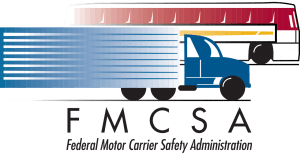OOIDA Opposes Motor Carrier Insurance Adjustment

U.S. Rep. Jesus “Chuy” Garcia (D- Ill.) has introduced legislation to ensure minimum insurance requirements for motor carriers are periodically adjusted.
U.S. Rep. Jesus “Chuy” Garcia (D- Ill.) has introduced legislation to ensure minimum insurance requirements for motor carriers are periodically adjusted to the inflation rate of medical costs. The proposed legislation, titled the INSURANCE Act, is being opposed by the Owner-Operator Independent Drivers Association (OOIDA), whose members fear it will drive up their insurance costs.

OOIDA Opposes Motor Carrier Insurance Adjustment — “INSURANCE Act, is being opposed by the OOIDA, whose members fear it will drive up their insurance costs.”
In 1980, Congress established $750,000 as the minimum insurance requirement for motor carriers to “ensure public safety and to measure the financial fitness and responsibility of a motor carrier company entering the business.’’
Over the past four decades, the cost of living rose by more than 200 percent, and the per capita health expenditure jumped from about $1,000 to about $12,000. Insurance minimums haven’t kept up. That’s where the INSURANCE Act would come in in order to adjust those rates to be in-line with current inflation rates, according to Garcia’s office.
In 2014, the Federal Motor Carrier Safety Administration (FMCSA) issued a study concluding that “the current financial responsibility minimums are inadequate to fully cover the costs of some crashes in light of increased medical costs and revised value of statistical life estimates.’’
Enjoying our insights?
Subscribe to our newsletter to keep up with the latest industry trends and developments.
Stay InformedFMCSA soon after issued a proposed rule to increase the minimums. However, the agency withdrew it in 2017.

In 2014 the FMCSA issued a study concluding that “the current financial responsibility minimums are inadequate to fully cover the costs of some crashes in light of increased medical costs and revised value of statistical life estimates.’’
Forty-eight truck safety advocates from 26 states and Washington, D.C., who make up the Truck Safety Coalition, sent a letter to members of the U.S. House Committee on Transportation and Infrastructure calling for passage of the legislation. The letter was signed by truck crash survivors and victims’ families.
The legislation is also supported by the Citizens for Reliable and Safe Highways, Parents Against Tired Truckers, Institute for Safer Trucking, the American Association for Justice and Road Safe America.
OOIDA contends the legislation would lead to a dramatic increase in insurance premiums for small-business truckers and would do nothing to improve highway safety because “there is no correlation between insurance coverage.”
In written testimony to the House committee, OOIDA officials said, “Federal law currently requires motor carriers to maintain at least $750,000 in liability coverage ($5 million for those hauling hazardous materials). However, the vast majority of carriers are insured at $1 million or more. Having additional coverage is obviously not required, but the insurance industry tends to naturally adjust levels based on market conditions. If enacted, legislation like the INSURANCE Act] would increase minimums from $750,000 to a whopping $4.9 million.”
OOIDA estimates that if Congress increased minimum coverage requirements to $2 million, premium costs for small business truckers could at least double, causing a trucker who currently pays $10,000 per year to pay $20,000.




















